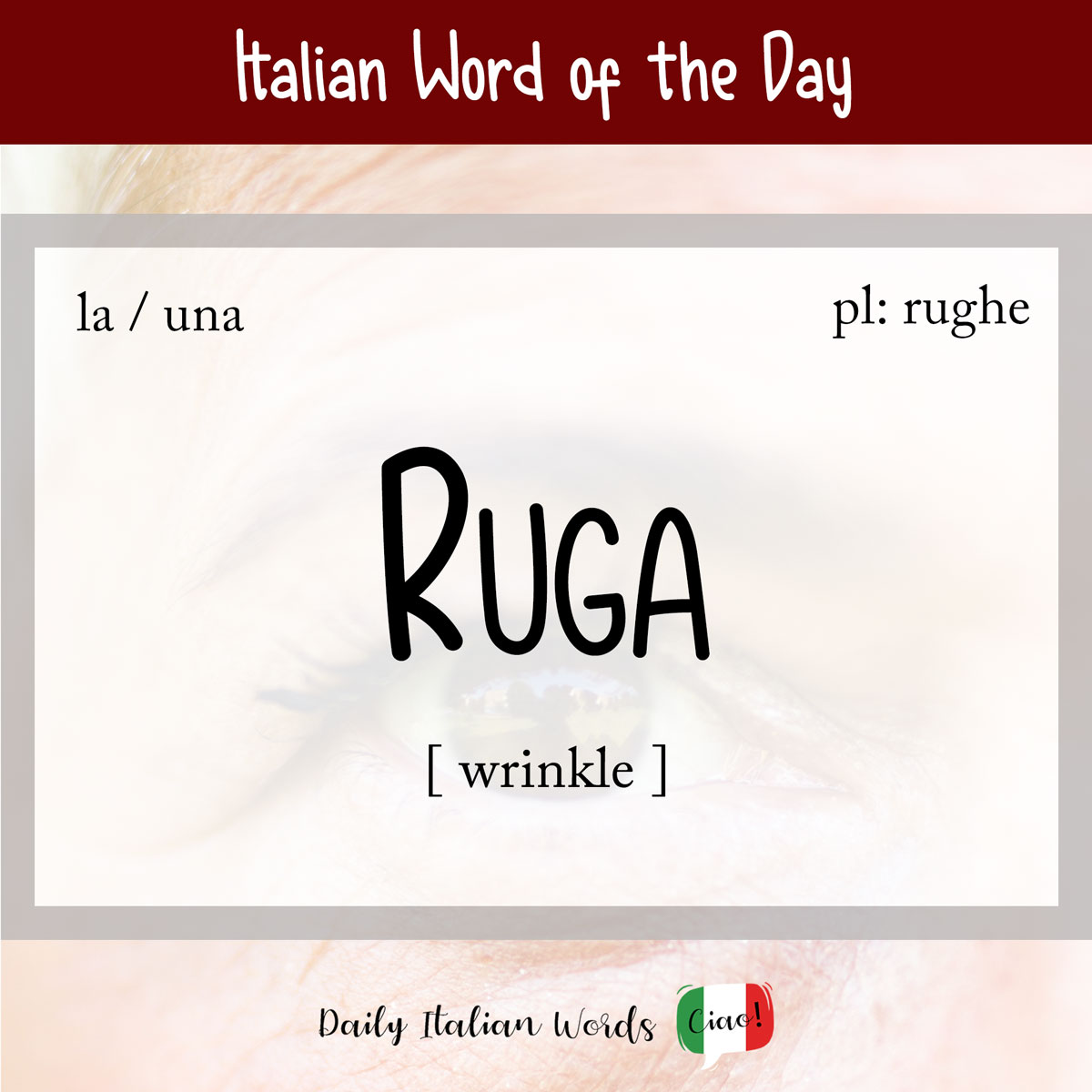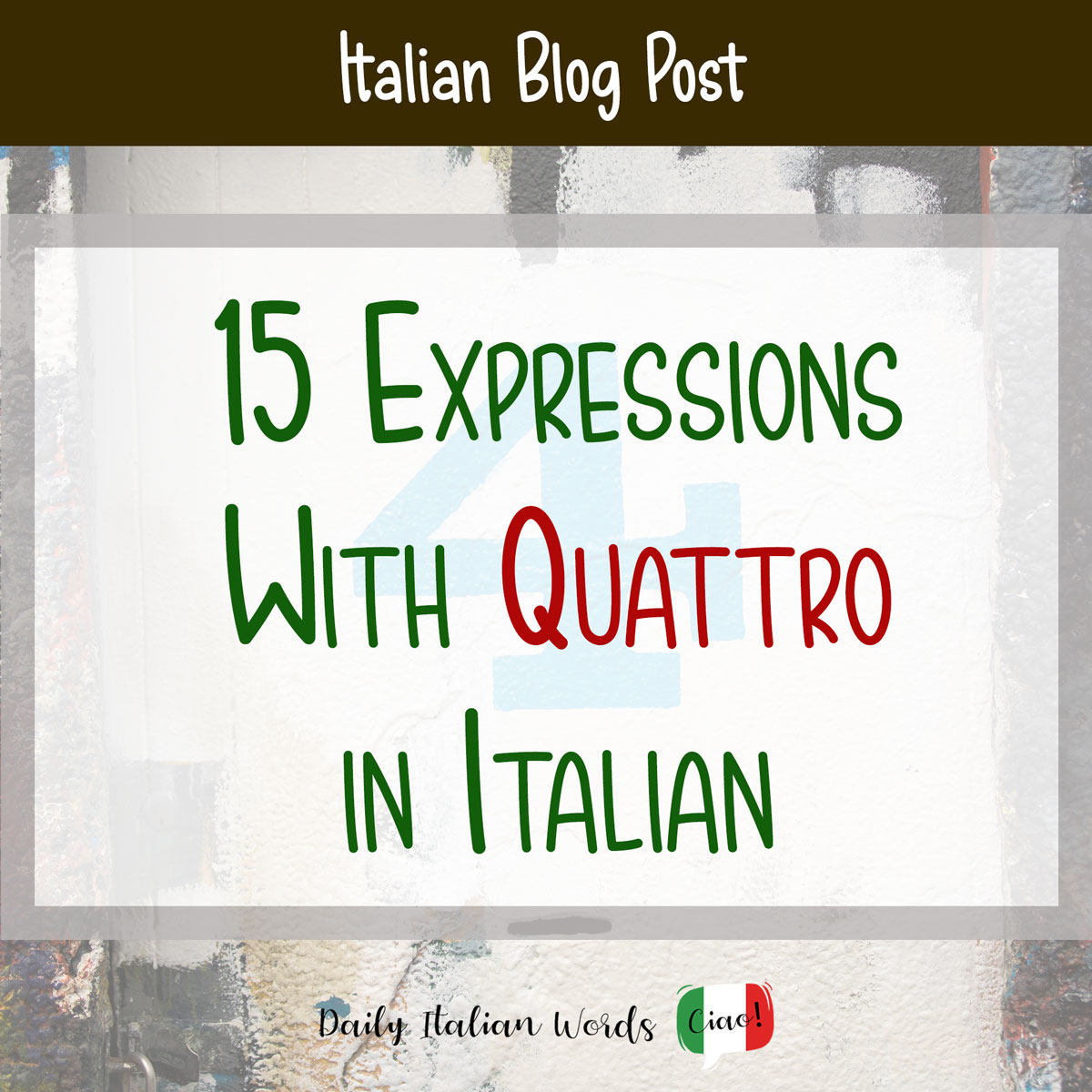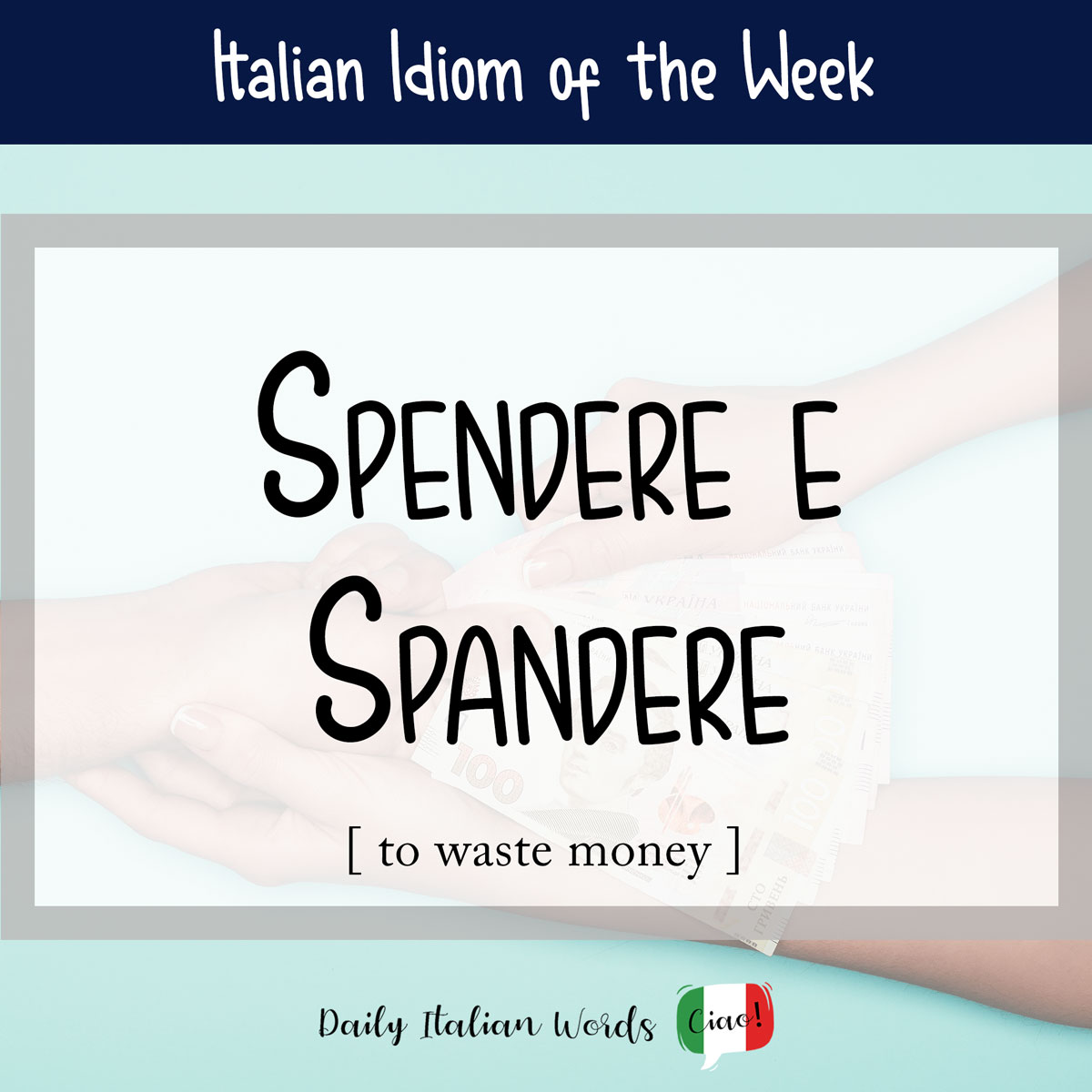Italian Word of the Day: Ruga (wrinkle)
At first glance, the Italian word ruga refers to a wrinkle, as in the fine lines that mark a face – and that I’m noticing more and more in the mirror every day! But in certain regions of Italy, especially in Venice, ruga also takes on a completely different meaning as we’ll discover in this …






